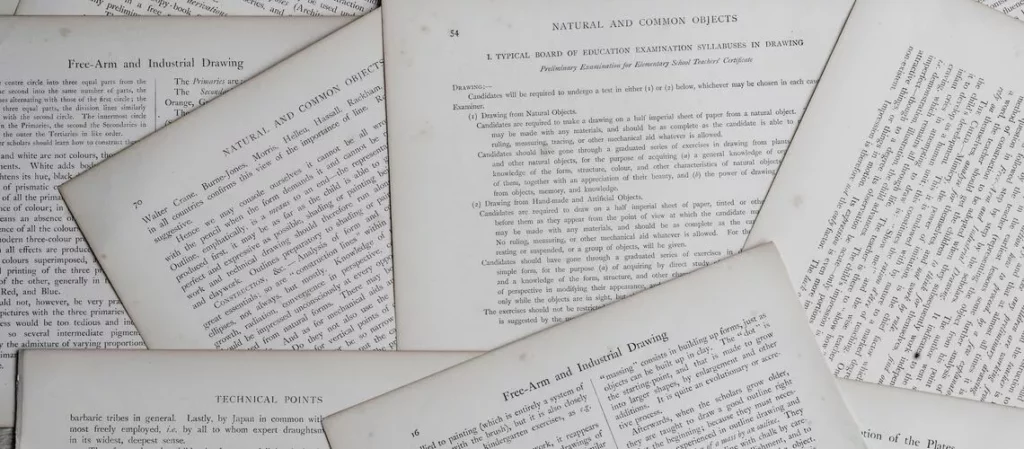professional residential, commercial and rural property valuations
Welcome to Brisbane Catchment Valuations
your trusted property valuation experts in Brisbane and surrounding areas
Our Core Services
Residential Valuations
Commercial Valuations
Rural Property Valuations
Valuer News

Determining a Property’s Worth: Valuation Methods Explained
Exploring the Key Approaches to Property Valuation
Property valuation is a complex process that involves several methodologies to determine the value of real estate. Understanding these valuation methods is crucial for homeowners, investors, and professionals in the real estate industry. Here, we delve into the primary approaches used in Sydney property valuations.
Sales Comparison Approach: The Market-Based Valuation
The sales comparison approach is a widely used method for residential property valuation. This technique involves comparing the property in question to similar properties that have recently been sold in the same area.
- Consideration of factors like location, property size, and condition.
- Adjustments made for differences in features and amenities.
- Reliance on current market data for accuracy.
The Cost Approach: Assessing Property Value from the Ground Up
The cost approach is commonly used for unique properties or those with few comparable market sales. This method estimates the cost to rebuild the property from scratch, considering the land value and depreciation.
Key Elements of the Cost Approach
- Estimation of the land value as if vacant.
- Calculation of the current cost to construct the property’s structure.
- Deduction of depreciation due to physical wear, functional or design obsolescence.
The Income Approach: Valuation for Investment Properties
Ideal for commercial and investment properties, the income approach focuses on the potential revenue that the property can generate. This method is crucial for investors and developers who prioritise return on investment.
Understanding the Income Approach
- Analysis of the property’s ability to generate income through rent or other means.
- Consideration of factors like vacancy rates, operating expenses, and potential income.
- Application of a capitalisation rate to estimate the property’s value based on its income.
Combining Valuation Methods for Comprehensive Analysis
In practice, valuers may combine different approaches to achieve a more accurate valuation. The choice of method depends on the property type, the available data, and the purpose of the valuation.
Integrating Multiple Approaches for Enhanced Accuracy
- Using the sales comparison approach for residential properties with ample market data.
- Applying the cost approach for unique or newly built properties.
- Employing the income approach for commercial or rental properties.
By understanding these various valuation methods, individuals and professionals can gain insights into how property values are determined and what factors influence these valuations. Whether you’re assessing the value of a residential home, a unique property, or an income-generating investment, being aware of these approaches can aid in making informed real estate decisions.

Tracking Property Value Changes in Your Portfolio
The Importance of Regular Portfolio Valuation
For property investors, especially in dynamic markets like Brisbane, keeping a close eye on the value of your investment portfolio is essential. Regular portfolio valuation offers numerous advantages, positioning investors to capitalise on opportunities and make informed decisions.
Assessing Market Trends and Property Values
Understanding how market trends in Brisbane affect your portfolio is key. Fluctuations in property values can significantly impact your investment strategy, and staying informed enables proactive adjustments.
Identifying Opportunities for Growth
Regular valuation helps identify growth opportunities. This could involve expanding your portfolio in high-growth areas or divesting from properties that have reached their peak value.
The Role of External Factors in Valuation Changes
External factors, such as economic shifts, government policies, and local development projects, can greatly influence property values in Brisbane. Staying abreast of these changes is vital for timely decision-making.
Strategies for Effective Investment Tracking
Utilising Technology for Portfolio Management
- Investment Tracking Software: Utilising software solutions for tracking property values can streamline the process, providing real-time data and analytics.
- Real Estate Market Analysis Tools: These tools offer insights into current trends and future projections, aiding in strategic planning.
Engaging with Property Valuation Professionals
Seeking expertise from valuation professionals provides an accurate understanding of your portfolio’s worth. They offer a comprehensive analysis, considering both current market conditions and future projections.
Regular Property Appraisals
Regular appraisals by professionals ensure that your portfolio valuation reflects the latest market dynamics, allowing for timely decisions.
Navigating Portfolio Valuation in Brisbane’s Dynamic Market
Staying Informed of Local Real Estate Developments
Keeping up with real estate developments in Brisbane, such as new infrastructure projects or zoning changes, can give investors an edge. These factors can significantly impact property values and investment potential.
Adapting to Market Shifts
The ability to adapt your investment strategy based on the current market scenario is crucial. Regular portfolio valuation equips you with the knowledge to make such adjustments, whether it’s buying, selling, or holding properties.
Key Takeaway
In conclusion, tracking property value changes in your investment portfolio is a critical aspect of successful real estate investing, particularly in vibrant markets like Brisbane. Regular portfolio valuation, coupled with strategic analysis and professional advice, empowers investors to make informed decisions, maximising their investment potential.

The Role of Interest Rates in Property Valuation: How changes in Australia’s interest rates can impact property value.
The Australian property market is a dynamic and ever-changing landscape, influenced by a multitude of factors. One key factor that significantly impacts property values is interest rates. In this article, we will explore the crucial role that interest rates play in property valuation, particularly within the context of the Australian economy. We will delve into the relationship between interest rates and property value, how changes in interest rates can affect the real estate market, and why property valuers Brisbane closely monitor these fluctuations.
Understanding Interest Rates
Interest rates, as set by the Reserve Bank of Australia (RBA), represent the cost of borrowing money. They are a powerful tool used to manage inflation, employment levels, and overall economic stability. When interest rates rise, borrowing money becomes more expensive, which can have a significant impact on property valuations.
Impact on Property Value
When interest rates are low, property values tend to rise. This is because low interest rates make borrowing money more affordable, stimulating demand for property purchases. Increased demand leads to heightened competition among buyers, driving up property prices. As a result, property owners may experience an increase in their property’s overall value.
Conversely, when interest rates rise, property values can stagnate or even decline. Higher interest rates make it more expensive for potential buyers to secure a mortgage, leading to a decrease in demand. This reduced demand can cause property prices to soften or potentially drop. Therefore, property valuers in Brisbane pay close attention to interest rate fluctuations as they directly impact property valuation assessments.
Role of the Australian Economy
Australia’s interest rates do not exist in isolation; they are closely tied to the overall health of the Australian economy. When the economy is strong, the RBA may increase interest rates to combat inflationary pressures. On the other hand, during economic downturns, the RBA may decrease interest rates in an attempt to stimulate growth.
Such changes in interest rates can have a significant impact on the property market. For example, during periods of economic expansion, interest rate hikes can help cool down an overheated property market, preventing a housing bubble. Conversely, during economic downturns, lower interest rates can help stimulate property sales and maintain stability in property values.
Importance of Property Valuers in Brisbane
Property valuers in Brisbane play a vital role in determining the fair market value of properties. They meticulously analyse various factors, including interest rates, to provide accurate and reliable property valuations. By incorporating interest rate data into their assessments, property valuers ensure that property owners and potential buyers have an up-to-date understanding of the property’s value within the current economic climate.
Interest rates have a substantial impact on property valuations in Australia. Fluctuations in interest rates can influence property values, with low rates typically driving prices upward and high rates potentially causing stagnation or decline. The Australian economy and its overall health are closely linked to these interest rate changes, further emphasizing their importance. Property valuers in Brisbane closely monitor interest rate fluctuations to ensure that property valuations accurately reflect market conditions. By considering the role of interest rates, property owners and potential buyers can make informed decisions in the ever-changing landscape of the Australian property market.

How to Read and Understand Your Property Valuation Report
A property valuation report provides an estimate of the market value of a residential or commercial property. It is an important document for property owners and real estate investors. This guide will help you understand the key sections and data points in a typical valuation report.
Property Details
- Address and property type (house, apartment, land etc)
- Land area and building area
- Number of bedrooms and bathrooms
- Special property features like pool, garage, waterfront access etc.
Knowing these basics helps provide context for the valuation.
Valuation Date
The valuation is done as on a particular date. The value conclusion is based on market conditions prevalent on that date. Real estate markets are dynamic, so a report gets outdated after 3-6 months typically.
Valuation Methods Used
- Sales comparison method
- Income capitalization method
- Cost method
The valuer usually applies a combination of these methods to derive the final opinion of value. The report should summarise how each method was applied.
Comparable Sales Data
This section lists the recent sales the valuer has used for comparison. Details like sale date, property type, area, price etc are provided in a table.
The sales prices of comps indicate the approximate current market value in that location. Adjustments may be made to account for differences in factors like property size, condition, amenities etc.
Adjustments and Calculations
The maths behind the valuation is explained here. The valuer describes the adjustments they have made to the comparable sales prices based on property features.
Any calculations related to capitalization rates, depreciation, land value percentages are shown. This helps support the final value conclusion.


